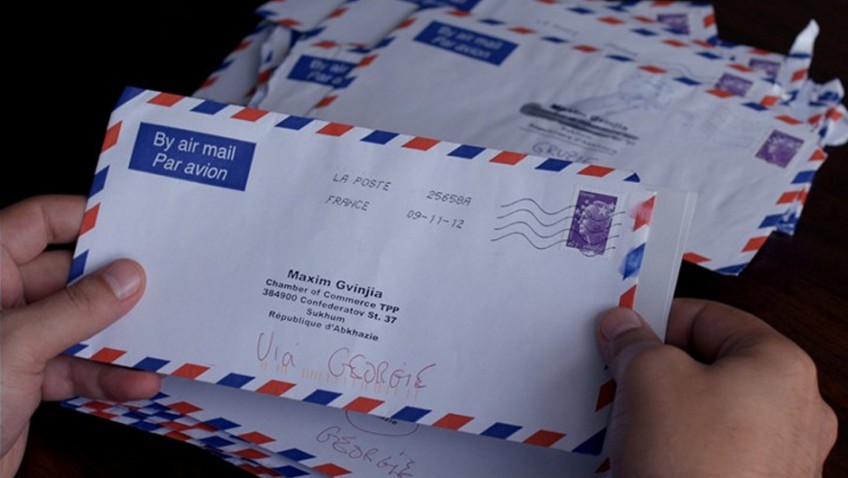Eric Baudelaire’s documentary ‘Letters to Max’ about the break-away republic of Abkhazia is released a week after the moving anti-war drama Tangerines that takes place during the 1992-1993 civil war between Abkhazians and Georgians.
Backed by the Russian army and mercenaries, the Abkhazians sought independence from Georgia, itself a new state, and the extermination or expulsion of all Georgians from the region. It would be the ideal companion piece to Tangerines were it more revealing about the state that has been a ‘rogue nation’ to all but six (including Russia, Nicaragua Venezuela and Cuba) of the UN’s 197 voting nations.
Baudelaire plays on this awkward situation and even makes it a kind of humorous motif in this documentary. Somewhat disingenuously he sends a series of questions in 74 letters (sent over 74 days) to a cultured and reflective young family man named Maxim Gvinjia. Gvinjia, who speaks good English, was the Foreign Minister of Abkhazia before being ousted (he does not mention the circumstances).
Max’s responses, accompanied by images many of which Baudelaire captured on an earlier and later visit to the country, archival footage, personal home videos and third person interviewee, comprise the backbone of the film.
We see footage of Max’s official visit to Nicaragua and Venezuela to meet the state’s backers and the reception thrown by Chavez. He expresses anger with the USA which made it difficult for him to transfer money to pay for the plane because of forced 24-hour lay-over in Cuba. Max had to organise the trip for a delegation of 44 people, including the president. We do learn much about the ability of these nations to stimulate trade with Abkhazia or contribute money to a nation far poorer than they are.
Abkhazia certainly looks like it needs investment. There is something very sad about it as if it has not moved beyond the 1950s. Max tells us they have two million Russian tourists a year, although Baudelaire comments at length at the decay of the buildings. ‘Maybe,’ suggests Max, ‘in such times the city is recycling itself or cannibalising itself,’ preparing the way for something new.
Most sobering are Max’s reflections on the war and the toll it took on his family. But Max says, ‘When you are in the war you have a goal. After the war it’s hard to find your way.’ While he seems to have worked his way up to Foreign Minister, he is now divorced and looking for employment. He admits he has an active imagination and is not practical. He would not be against joining other principled and like-minded creative types to form a political movement.
In theory, Baudelaire tells us, the letters should not have arrived because Abkhazia is not recognised by the international postage service. Still, even if they arrive out of order, with some delay and with the occasional letter missing, most do arrive and are answered – a bit too guardedly. If they did not, you could argue that Baudelaire could pick up the phone or email Max.
by Joyce Glasser, Mature Times film reviewer




